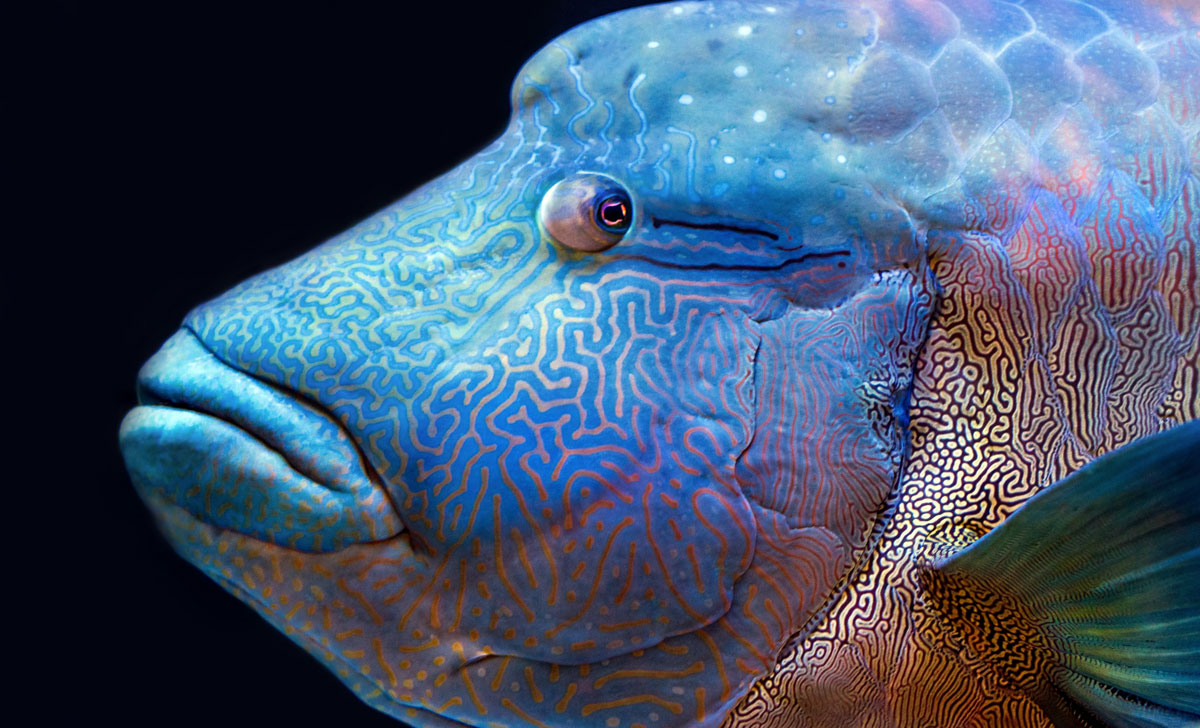
For anyone who is a Star Wars fan the term ‘there is always a bigger fish’ will be very familiar, as it was used in the opening scenes of ‘Star Wars 1: The Phantom Menace’ in both a literal and figurative context. The implication of the proverb is that there is always something bigger and more powerful that could consume things considered lesser. In the movie it was literally a bigger fish consuming a smaller fish that was acting as though it was an apex predator. Whilst it thought it had power and dominance, it was to be consumed by something much larger. Simultaneously, it was also used by Qui-Gon Jinn as a metaphor to describe the world order.
The proverb has been with us from at least the sixteenth century and probably earlier. In addition to being used in the literal context and as a metaphor to explain how something bigger can come along and usurp something of lower significance, it has also been used as a metaphor to describe how a bigger opportunity can turn up in the future if an opportunity in the present is not fulfilled. It can also be used as an expression of humility to remind us not to get too far ahead of ourselves or see ourselves as too important or powerful to the detriment of others.
While all interpretations have validity, the one I like most is the concept of opportunity, specifically in the context of leadership. The ‘bigger fish’ is the chance for leadership to do something for someone or something else (who could be close and known, distant and unknown, and human or non-human) and move them away from the potential to experience harm and suffering and instead move them towards a greater sense of happiness, wellbeing, or flourishing. That is, the chance to act with compassion, care, justice, and generosity. However, unfortunately the ‘bigger fish’ often gets away. Let me explain further.

All of us in one way or another have witnessed the impacts of the global pandemic known as Covid-19. It has literally reached all four corners of the earth with no country escaping its effects. The response has been highly varied and complex, and much of its effectiveness has been contingent upon two key factors. Firstly, the extent to which the leaders of a country or state have had access to the equities of power, wealth, and resource, and secondly, the extent to which leaders have used these equities for the greatest good and for the greatest number.
The globally disproportionate distribution of these equities has proven to show that, despite our collective capacity to vaccinate all peoples across the world, many continue to suffer due to lack of access and opportunity as well as an overarching lack of compassion, care, justice, and generosity by those more privileged. Unfortunately, and this has been a constraint in the psyche of humanity for centuries, we have tended to prioritise looking after ‘people like us’ over distant and unknown others. Or, in other words, our compassion, care, justice, and generosity only extend to ‘known others’ that we regard as the same or similar to ourselves, who are in close proximity to us, and in which we feel a sense of responsibility to value and protect.
This constraint is often reflected in the way we govern ourselves. A predominant feature of nation and state responsibilities are the constitutional, legal, regulatory, and political frameworks that determine rights, duties, and obligations between us, and between ourselves and the state. Across a single continent known as Australia, this plays out in the context of six states, two territories, and the commonwealth. All hold various responsibilities for providing protection to their citizens and all have sought to fulfil those responsibilities within the equities of power, wealth and resource made available to them. Overall, the results have been encouraging and due to the efforts of each level of government most of us have managed to avoid some very unpleasant health experiences thus far.
However, these same governance arrangements that seek to make sense of how we collectively move forward as people, also have the potential to divide us and let ‘the bigger fish’ get away. One of the ways they do that is by assigning us a political identity that reinforces our relationship with ‘people like us’. For example, a single citizen may be referred to as a Melburnian, a Victorian, or an Australian. One person, three political identities. These identities are often spoken about in absolute terms: all Melburnians, all Victorians, or all Australians, depending upon the political motivations and desires at the time and the debates that ensue.
In so doing, they keep us entrapped within a regime of allegiance to and compliance with these governance arrangements that reinforce division and difference: keeping us caught in a world of ‘little fish’. ‘Queensland hospitals are only for Queenslanders’ was famously quoted during the height of the pandemic when states tried to stop the spread of the virus across their jurisdictional borders. The statement was not unreasonable if one only considers the obligation to protect another human as being limited to constitutional, legal, or regulatory obligation and political identity. However, if one considers the obligation as a compassionate, caring, just, and generous human being, then the statement is unreasonable. Fortunately, most people viewed the statement as ‘unreasonable’.
Allegiance to and compliance with governance arrangements as the basis in which we seek to increase wellbeing, provide protection, and reduce suffering produces a suboptimal result and lets the ‘bigger fish’ get away. Despite the immense equities of power, wealth, and resource contained within a country like Australia and its political jurisdictions, such allegiance and compliance rob us of the opportunity to be more compassionate, caring, just, and generous. They rob us of our humanness, often resulting in us seeing others as less-than-human on some level: not as important, not as worthy, not as valuable. As difficult as it is to say, this is endemic in our inter and intra-jurisdictional arrangements as has been witnessed many times during Covid-19.
However, as leaders, we can turn this around. If we hold rank, title, position, or authority within a public or private institution, then we have (albeit varying degrees of) access to the equities of power, wealth, and resource.

We also have the natural ability to be more compassionate, caring, just, and generous in spirit. By combining these equities and abilities, rather than seeing them as a binary choice, we can make a significant difference. We can leverage them to bridge the gaps and divisions that governance arrangements so often create between leaders at all levels of the political and bureaucratic system. We can use them to create solutions that honour the constitutional, legal, regulatory, and political obligations of our public and private institutions AND optimise wellbeing, provide protection, and reduce the suffering of close and known others as well as distant and unknown human and non-human others.
We need the bigger fish. We need something bigger to come along and exert its power and influence to usurp something lesser. We need a bigger opportunity to turn up to rectify missed opportunities of the past. Finally, we need something bigger as an expression of humility to remind us not to get too far ahead of ourselves or see ourselves as too important or powerful to the detriment of others. The bigger fish is our innate capacity to be compassionate, caring, just, and generous, so don’t let it get away!

